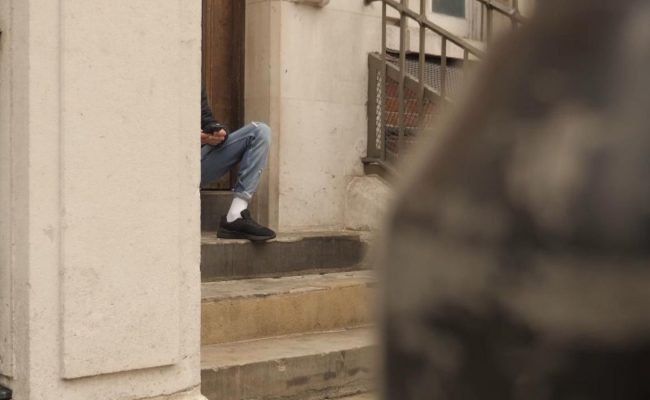‘More people than ever before’ using fake passports and visas to get to UK
- Posted on
- Comment

More people from Iran than ever before are using fake passports or fake visas to get to the UK, an Iranian asylum seeker has told Sky News.
“Boats are dangerous. It’s really dangerous to cross the Channel,” says 43-year-old Erfan, who used to run a travel agency and arrived on a fake passport three months ago.
“It’s easy to get a fake passport if you have money, if you can pay. The way to run away from Iran is by fake passport.”
While some want to avoid the dangers of crossing the Channel, thousands of others are still trying.
It’s six months since Rishi Sunak made stopping small boat crossings one of his top priorities of government.
New figures show overall small boat crossings are slightly down in the first six months of the year compared to last – 11,434 compared to 12,747.
However, June was the highest monthly figure on record – with 3,824 people arriving by small boat.
We spoke to Erfan and other asylum seekers outside a hotel where they are being housed whilst waiting for their claims to be processed.
‘There’s no other choice
It gives an insight into the wider migration issues facing the government. Resolving Britain’s migration crisis goes beyond stopping small boats.
We’ve come to catch up with an asylum seeker called Sadam, who fled fighting in Sudan.
We first met him a few months ago – threatening to organise protests over the treatment of asylum seekers.
Remarkably we witness him almost being talked down by another asylum seeker – Khalid, from Iraq, who came by small boat and was successful at the 15th attempt.
“There’s no other choice,” says Khalid, advising Sadam to focus instead on studying and learning about British culture instead of getting frustrated by processing delays and being moved to different hotels.
But in a warning to the UK government, Sadam insists: “The asylum situation in the UK is going to be very bad in the next few years. Because asylum seekers who arrive in the UK they’re still waiting for their case and the government doesn’t care about asylum seekers.”
Sadam says he’s been waiting for his claim to be processed for three years.
“Don’t worry about that,” says Khalid, “the government gives you a hotel and food.”
There seems to be a real division of opinion about the conditions in the hotel.
Another man, who doesn’t want to give his name but says he’s from Botswana, tells us: “It’s very nice in the hotel. The British government is doing a fantastic job in the way it treats asylum seekers.
“The food is nice. Breakfast is constant. Laundry is done. It’s ok. The toilets are clean – hot water and every Wednesday you get clean sheets.
“There are those who don’t like it but for me it’s ok. They are complaining about the comfort that they don’t have back at home. Those who know what they’re here for they don’t complain. Because there’s free education. Everything is free inside.”
Rwanda would be ‘better than living here’
Another asylum seeker called Priam shares a video which he says shows overcrowding in a room he’s sharing with five others and water coming from the ceiling.
“I want a single room,” he says.
“I don’t want to share my life. I want to speak with my family for example or read a book.”
Priam – is from the Kurdish region of Iran and describes himself as a Kurdish separatist. He says in Iran he transported goods over the border to Iraq and came by small boat in May 2021.
Yet in the week the government lost the latest round in a legal battle to send asylum seekers to Rwanda, he makes an unexpected comment.
He says going to Rwanda would be “better than living here” – gesturing towards the hotel.
Deterrent is part of the government’s strategy. It has already pledged to reduce the six million pounds a day it spends on housing asylum seekers in hotels by moving them to larger sites around the country.
-Graphic










 (Selorm) |
(Selorm) |  (Nana Kwesi)
(Nana Kwesi)